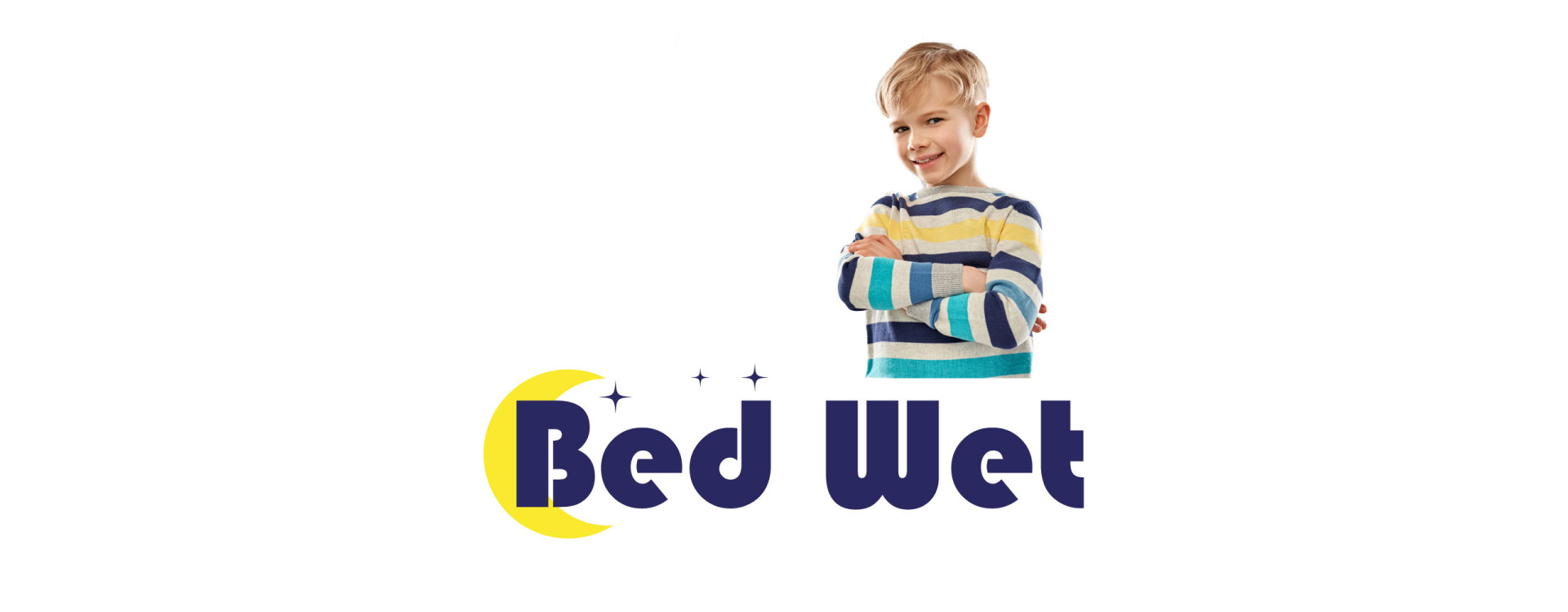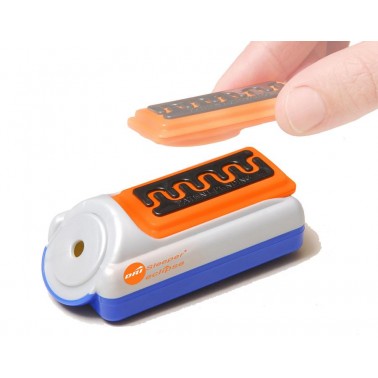An alarm is one of the most effective treatments for nocturnal enuresis.It works by waking the child as soon as the first drops of urine are present , which allows the brain to gradually learn to recognize the signal of a full bladder during sleep.

I don't want to wet the bed anymore!
Bedwetting: it can be treated. "It will go away on its own, there's no need to dramatize it."
For many parents, the problem of their children's bedwetting is simply not something to be considered. And indeed, 15% of bedwetting cases resolve on their own each year… But another 2% of children still experience bedwetting around the age of 15. Yet, early intervention could help free the child from this problem.
Faced with the problem of nocturnal enuresis, mothers' attitudes oscillate between
- trivialization
- repressive measures (15% ask the child to change their sheets and 14% scold the child)
- As for doctors, they are rarely prepared to detect these types of problems . In most cases, they simply provide hygiene and dietary advice.
"We are in a wait-and-see attitude ," laments Dr. Henri Lottman, urologist at Necker-Enfants Malades Hospital in Paris.
A disease that's not so benign.
Furthermore, since bedwetting is not considered an illness, communication about it is not regulated. However, far from being a minor problem that will resolve itself with time, bedwetting can profoundly affect a child's psycho-emotional development and social integration. Anxiety, feelings of guilt, and rejection sometimes lead to significant withdrawal. According to a 2000 survey by Sofres Medical, 42% of children with bedwetting reported avoiding sleepovers at friends' houses and 36% avoided going away from their family.
- Isolated primary nocturnal enuresis affects more than 400,000 children between 5 and 10 years old in France, representing nearly 9% of this segment of the population.
- Aged over 5 years , these children regularly wet the bed without ever having been dry at night and without having experienced an episode of continence beyond 6 months.
- They are free from any organic, urological, neurological or psychiatric condition. They can also be perfectly clean during the day.
- One of the contributing factors lies in family history. For 74% of boys and 58% of girls, at least one of their parents has experienced such a situation.
- Also contributing is the decrease in nocturnal secretion of ADH, an antidiuretic hormone that normally prevents nocturnal leakage.
- However, psychological factors are not necessarily the cause of the problems.
Early intervention
It is important for the doctor to reassure the child by explaining how the bladder works and the reasons for the immaturity of their urinary system. Several treatments are also available.
Audible alarm
Widely used in the United States, it wakes the child as soon as he or she starts to urinate.

Regarding medications
Tricyclic antidepressants were used for a long time. They are no longer recommended today due to their side effects (tremors, constipation, tachycardia). Since 1989, desmopressin, a molecule with a structure similar to antidiuretic hormone, has been available. The use of medication is not systematic. According to the latest recommendations from health authorities, management is primarily based on educational and lifestyle measures.
However, relapse is almost inevitable when the child stops medication. The child must learn to recognize the urge to urinate, to hold it in, and to urinate at the appropriate time. This learning process can be lengthy, and the commitment of both the child and the family is necessary for effective treatment.
Nighttime incontinence is not inevitable, but it must be taken seriously by parents.








Latest comments